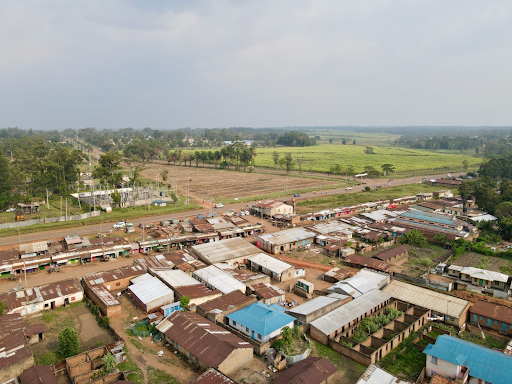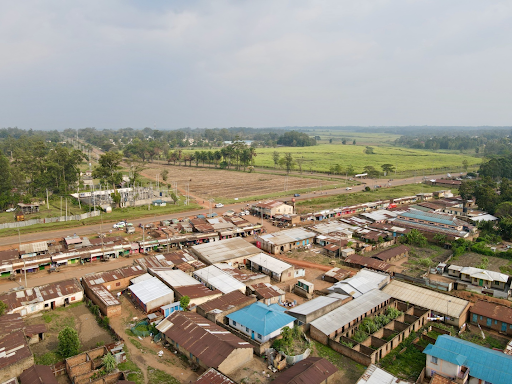|
Getting your Trinity Audio player ready...
|
By Liz Anyango
The ongoing initiatives spearheaded by Kenya’s President, Dr. William Ruto to improve electricity access, road, and market linkage infrastructure are critical in enhancing the livelihood of farmers and stimulating rural economies. The focus on electricity is especially significant in the modern era, as no economy can prosper without reliable power. The ongoing electrification projects, designed to increase access to affordable and sustainable electricity, are a fundamental part of these efforts.
By targeting counties like Bungoma (Ksh. 2.2 billion), Vihiga (Ksh. 651 million), and Busia (Ksh.1 billion), where energy access has historically been limited, essential sectors like agriculture, healthcare, education, and public infrastructure are all supported. This includes providing power to industries, hospitals, schools, markets, and households, all of which contribute to a more vibrant and sustainable rural economy.

The commitment to connecting more than one million people in the next two years is a major step toward achieving universal power access in Kenya, ensuring that every Kenyan, regardless of their socio-economic status, has the opportunity to benefit from the transformative power of electricity. The investments, which include over Sh7 billion specifically directed toward last-mile connectivity in key counties, underscore the government’s dedication to this cause.
President Ruto’s emphasis on power as a right—”not only for the rich but for all Kenyans”—is a vital message of inclusivity and economic empowerment. This aligns with Deputy President Kithure Kindiki’s call for unity in achieving development goals, including improved healthcare, better roads, and job creation. This vision will likely lead to stronger economic growth, increased productivity, and enhanced living standards across the country.
The involvement of international partners and the private sector strengthens the efforts. These partnerships bring critical funding, technical expertise, and support for the broader goal of electrification, and they highlight the importance of global cooperation in realizing national development objectives.
Given that reliable power is essential for achieving the “seven golden keys” mentioned by the Deputy President, which include macro-economic stability, support infrastructure, value chains, housing, jobs, health care, and education, the Kenyan government’s push for improved electricity access can serve as a catalyst for broader national progress.
As these infrastructure projects continue to unfold, the hope is that they will also be complemented by the completion of markets, helping to build a self-sustaining, robust rural economy and contributing significantly to the national Gross Domestic Product (GDP).
In sum, the initiative is a major step toward a more equitable and prosperous Kenya, with electricity serving as a key enabler for both economic development and social well-being.














